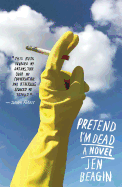On Monday, I read that during the London Book Fair's Quantum Conference, Hachette U.K. CEO David Shelley said he was "optimistic" about "people's relationship with paper" and the trend of younger generations gravitating back toward paper, along with the resurgence of independent booksellers. "If you look at what consumers are saying they want from us, they're not saying they want interactive e-books," he observed. "What consumers are saying that they want from us are really, really beautiful books."
That's true... and heartening. I'm one of those people described above who have a lasting "relationship with paper." I'd guess you are, too. It is only a slight exaggeration to say: "Books are my life." But I'm also intrigued by other voices out there. No, this isn't a ghost story, though there is a ghost story coming up if you read just a little further.
On Tuesday, I read an interview with "applied futurist" Tom Cheesewright, who contends that e-book sales statistics "are completely wrong--they only take account of established publishers, so it's measuring the wrong thing. As I say, technology breeds diversity, and that includes diversity of publishing models as well as diversity of formats." The next question posed to him was about the future of bookshops, and he was optimistic, in a futurist kind of way: "Machines remain really bad at giving us a good discovery experience."
So... that's a consolation.
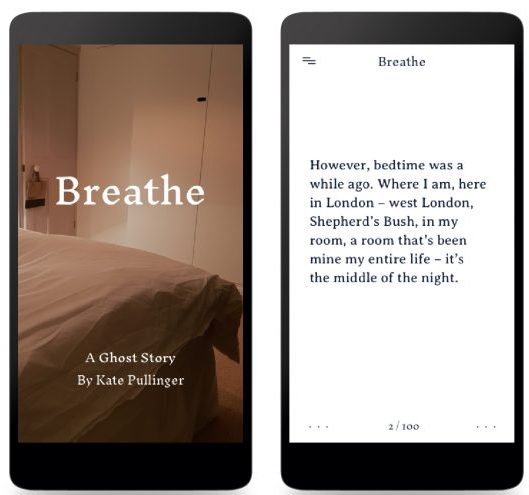 On Wednesday, I read Kate Pullinger's story "Breathe" on my iPhone. It was produced in association with the Ambient Literature project, which launched in 2016 to "investigate the locational and technological future of the book. The project is focused on the study of emergent forms of literature that make use of novel technologies and social practices in order to create robust and evocative experiences for readers."
On Wednesday, I read Kate Pullinger's story "Breathe" on my iPhone. It was produced in association with the Ambient Literature project, which launched in 2016 to "investigate the locational and technological future of the book. The project is focused on the study of emergent forms of literature that make use of novel technologies and social practices in order to create robust and evocative experiences for readers."
"I plan to write a ghost story to be experienced in a bedroom in a city--any bedroom, in any city," Pullinger had noted in the Bookseller when the Ambient Literature project began. And she did just that, later describing "Breathe" as "a literary experience delivered through your smartphone that responds to your presence by internalizing the world around you. Using APIs--application programming interfaces--the story leverages data about you, including place, weather, time, in order to create an experience that is personal and uncanny."
In a recent blog post, Tom Abba wrote: "Ambient Literature has been an extended conversation about storytelling, situation, audience, presence and much much more." During this year's Hay Festival, his group will be running workshops, hosting a panel discussion and making a new piece of work--"Words We Never Wrote"--that will premiere there and "explores the meaning of writing, language, and storytelling. I'm incredibly proud of this piece--it asks questions about linearity and form, art and suggestion that I've been aching to address for years."
Ambient Literature is one of many ways to answer the eternal storytelling prompt: "What if?" As a reader, former bookseller, working member of the book trade, and person "of a certain age," I am as devoted to the traditional book as I've always been. I have never become an e-book guy, but I am intrigued by alternative ways in which stories can be told using technology.
In 2016, the same year Ambient Literature launched, I saw Simon McBurney's stage production The Encounter in New York (It has just opened in London to begin a European tour). You could say that the production is "based on" Petru Popescu's book Amazon Beaming, which chronicles the head-spinning 1969 journey by National Geographic photographer Loren McIntyre into a remote area of Brazil, where he became lost and literally/figuratively blew his mind.
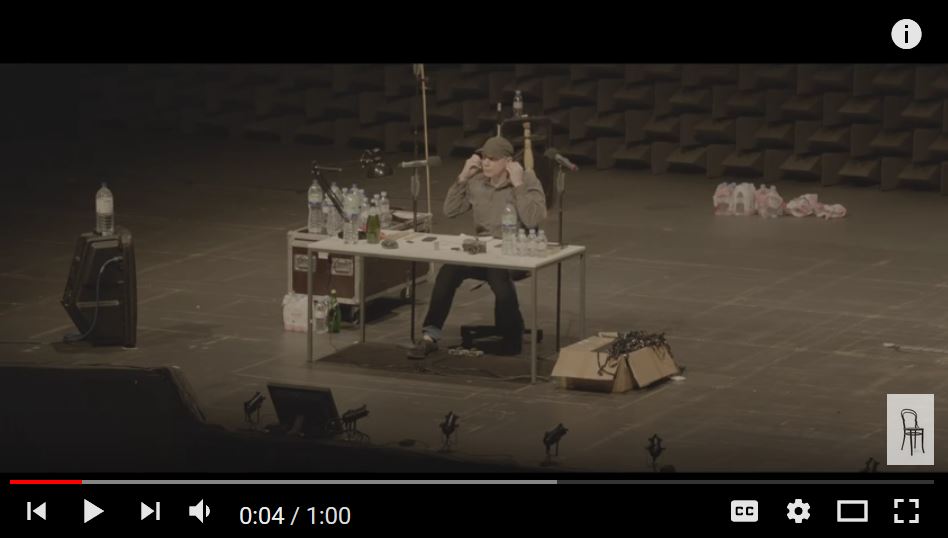 You could say it was about that, but it becomes so much more when filtered through McBurney's imagination. He explains it better than I ever could here, and here, and here. I sat in a sold-out Broadway theater, wearing headphones like everyone else in the audience, and became part of this incredible act of storytelling. Safer than being lost in the Amazon jungle, but mind-blowing nonetheless (trailer).
You could say it was about that, but it becomes so much more when filtered through McBurney's imagination. He explains it better than I ever could here, and here, and here. I sat in a sold-out Broadway theater, wearing headphones like everyone else in the audience, and became part of this incredible act of storytelling. Safer than being lost in the Amazon jungle, but mind-blowing nonetheless (trailer).
On Thursday, I read an interview with Gareth Fry, a member of The Encounter's sound design team, who said: "Simon was given the book about 20 years ago and he spent a long time mulling over how to do it. He did some workshops before I came on board and began to think about the story's epic scale, its claustrophobia and its characters. That the audience wear headphones is something that evolved out of that process of trying to find the best way to tell the story." (McBurney's take on storytelling).
That's it, really--"the best way to tell the story." Printed books have always done the job flawlessly for me, and still do every day. But there are stories that can be told in other ways. Kate Pullinger's "Breathe" is one; The Encounter another. While e-books themselves don't interest me, I'm fascinated by the technological exploration of "What if?" Ultimately, I think the best way to tell a story depends upon who the storyteller is.





IPC.0204.S3.INDIEPRESSMONTHCONTEST.gif)




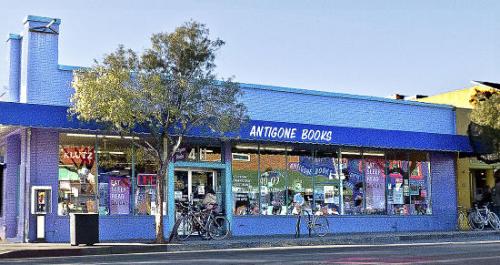 Antigone Books
Antigone Books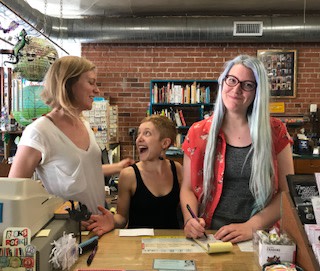

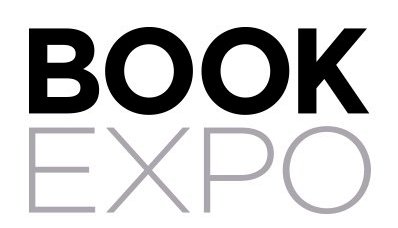 BookExpo
BookExpo
 "Every now and then the
"Every now and then the IPC.0211.T4.INDIEPRESSMONTH.gif)
 The
The 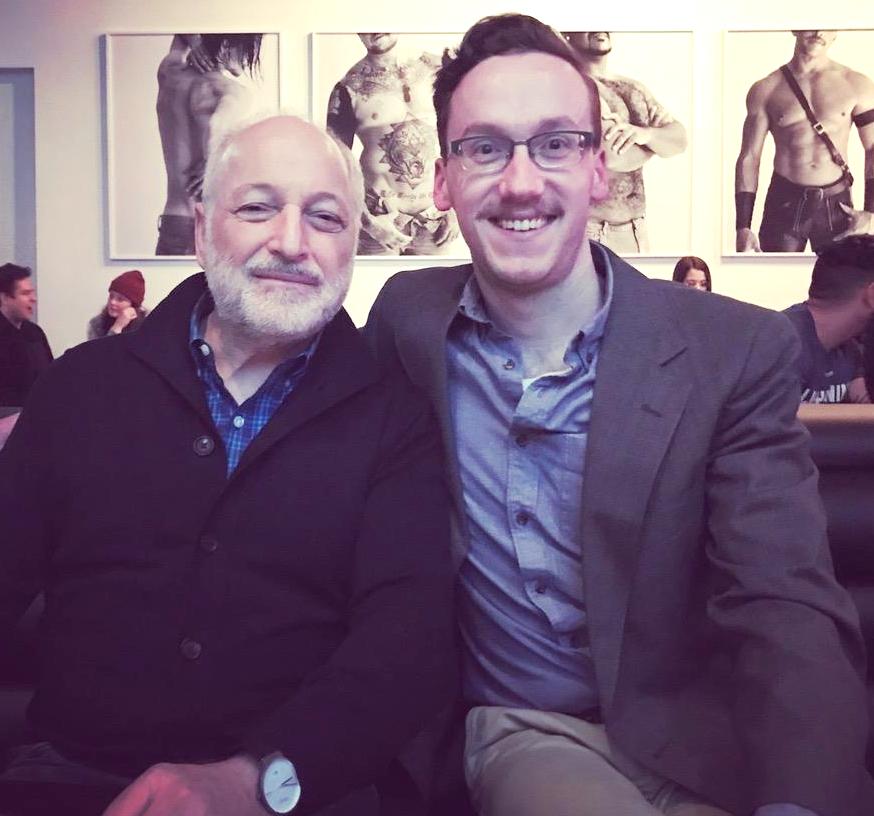
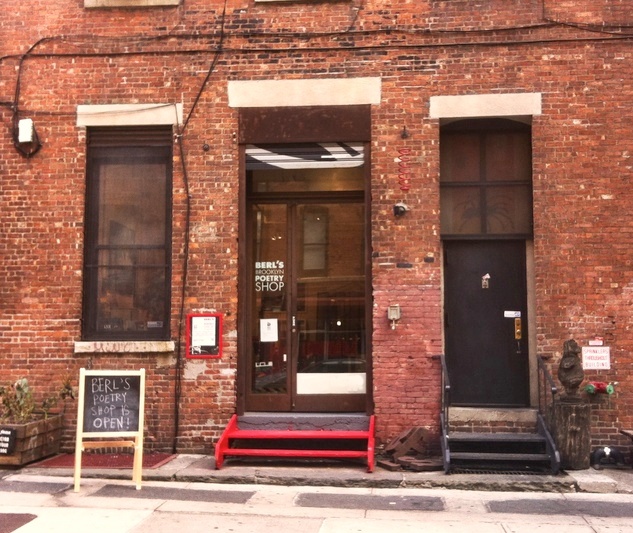 A chalkboard outside
A chalkboard outside 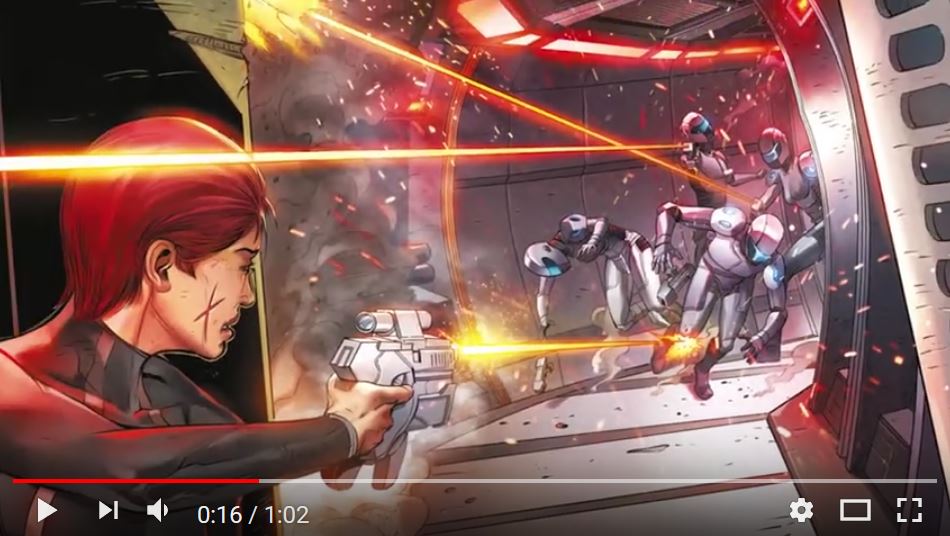 The Lost Fleet: Corsair
The Lost Fleet: Corsair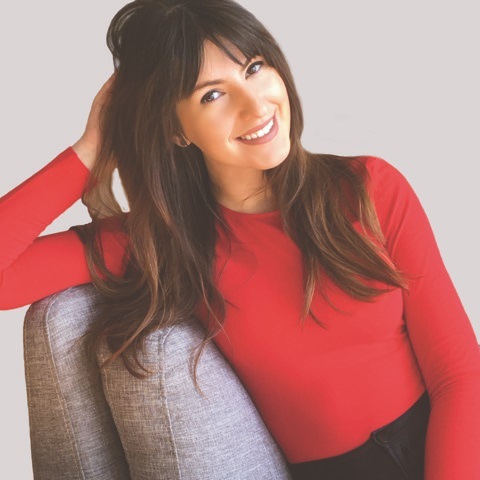
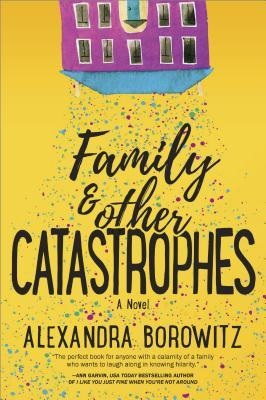 Book you're an evangelist for:
Book you're an evangelist for: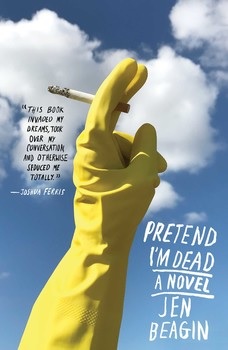 Whiting Award-winner Jen Beagin's first novel, Pretend I'm Dead, features the raunchy, antsy, droll and painstakingly proficient housekeeper Mona. After a blue-collar childhood in Torrance, Calif., with an alcoholic father and equally dysfunctional mother, she is placed with distant kin in Lowell ("Hole"), Mass., and pretty much left to fend for herself. By day she cleans the houses of her adopted hometown with "all this brick and repression... snow, wool, guilt." By night she works at a pop-up needle exchange where she meets a disabled addict wearing a tee with Jack Kerouac on the front. Two decades older and living in an SRO hotel, this man she calls "Mr. Disgusting" has a room with real paintings, Indian textiles and shelves of existential and Russian novels--unlike her last boyfriend: "some edgeless dude... whose heaviest cross to bear had been acne." Mona may not know where she's going, but she knows what she likes.
Whiting Award-winner Jen Beagin's first novel, Pretend I'm Dead, features the raunchy, antsy, droll and painstakingly proficient housekeeper Mona. After a blue-collar childhood in Torrance, Calif., with an alcoholic father and equally dysfunctional mother, she is placed with distant kin in Lowell ("Hole"), Mass., and pretty much left to fend for herself. By day she cleans the houses of her adopted hometown with "all this brick and repression... snow, wool, guilt." By night she works at a pop-up needle exchange where she meets a disabled addict wearing a tee with Jack Kerouac on the front. Two decades older and living in an SRO hotel, this man she calls "Mr. Disgusting" has a room with real paintings, Indian textiles and shelves of existential and Russian novels--unlike her last boyfriend: "some edgeless dude... whose heaviest cross to bear had been acne." Mona may not know where she's going, but she knows what she likes.